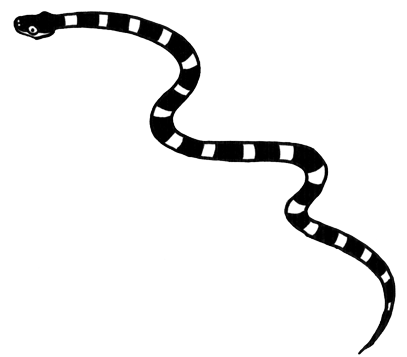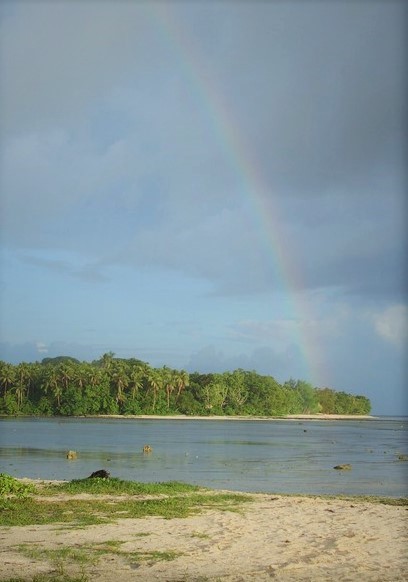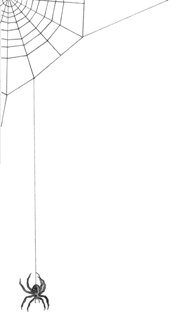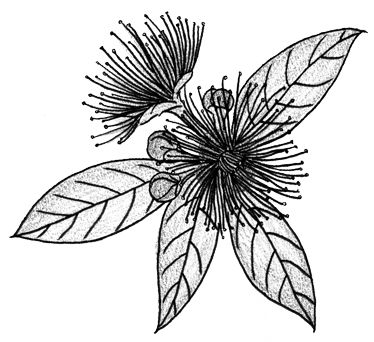1 – many, a lot of; numerous
| Ne ngogoro uña menuko abia, ka pe-romo p-ajau!There are many animals in the woods, be careful! |
| Abia tamwase!There are too many! |
| Ni-bo abia.head of NPI've cut many of them. |
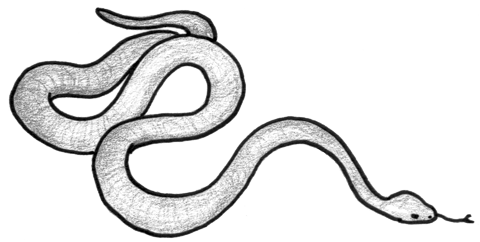
snake
| Abilo pon i-ovei pe i-somoli mwaliko.This kind of snake can be harmful. |
| Abilo i-tataele ne tanoe.There’s a snake crawling on the ground. |
1sabo ne ene2sabo ne eo3sabo ne ini
Anatomy
1 – blood
| Men' one i-tabau i-woi visibaele ini ne touro, abo i-ke.My son fell down and hurt his knee on the reef; he was bleeding. |
| Abo peini ma i-udu.His blood was dripping from his hand. |
| Abo na, (abo) ne ngele?Whose blood is this? |
| I-ko i-la abo ne kaipa i-ko i-romo abo i-ko pi-tavie we tae.He wants to draw your blood and examine it to see if you are sick. |
poss. classifierne ① ⓑ▻①
Grammar
1 – before hortative‘all right’, ‘let's’
| Abu ne-kila Puma!teleradioLet me try and ring the guys in Puma. |
| Abu le-romo kape i-ka we tae?Let's see if she'll come or not. |
Discourse
2 – before imperative verbmarks polite order: ‘please’
| Abu bai-aiu ba-vio me ne-rom!Could you please stand up and let me have a look there? |
| Ab' u-leng' i-ka.Listen to me for a second. |
📘 Cognate with the conative prefix bu- ③.
Averb, intransitive
go down
1 – physical motiongo down
2 – figsubside, slow down
| Pana iawo i-abu mijaka.The flames (of the fire) have died down a little. |
| O, tae, la-wañaka iada ka i-abu i-wene.That's all right, their dispute has gone down now. |
Bsecond verb, intransitive
1 – after intransitive verb(move+) down
| I-sabu i-abu ne ero.He fell down in the river. |
| Kuo pine ponu i-atili i-abu i-le.The huge canoe was sliding down (on the rollers). |
| Ero i-pu i-abu i-vagasi revo.The river flows down to the sea. |
2 – after transitive verb(take, move s.th.) down
| Li-toe dero i-abu.They cut down the cauri tree. |
| Ni-tabulu voko i-abu i-le ne gilita.I rolled a rock down into the valley. |
3 – geocentric meaningdownwind, towards north or west
| Ngiro Tangake i-aka i-abu i-kamai tev' iu ne.The Tangake wind blows down from the east. |
seetev’ tawo
Words for hitting and striking ✧ li-abu
| ~abu | hit w. hands; kill |
| ~ago | spear; shoot w. arrow |
| ~apini | kill, destroy |
| ~arevo | shatter, destroy |
| ~bei | squash, crush |
| ~la ~mini | strike hard |
| ~makoe ; ~mamakoe | broken, shattered |
| ~panade | split |
| ~pidi | strike w. supple object; lash, whip |
| ~tobo | poke; pierce |
| ~viane | hit w. foot, trample, stomp |
| ~vo ① | beat, pound w. long stick; crush |
| ~vokoiu | break; crush, destroy |
| ~wate | bang on ‹s.th.› |
| ~wete | spear; shoot; pound; grind |
| ~woi | stab; plant; erect, thrust; bang |
1 – hit, strike ‹s.th., s.o.›, typic. with o.'s hands
| Ka vitoko kape i-abu tanoma ini, ia i-abu i-kovi.He nearly hit her face; but he missed. |
| Dapa kula li-abu revo, me le-labu namuko.The others slap the water, in order to (scare and) catch the fish. |
see~wete
2 – figs.th.have an impact upon ‹s.th., s.o.›, affect
| Vilisao i-abu toñaki pon.The ships were struck by a tornado. |
| Tavsone ponu i-abu nengele idi.Covid-19That sickness weakens the body. [lit. it strikes one's limbs] |
3 – play ‹musical instrument› using hands
| Li-abu ukalele ka gita.They play the ukulele and the guitar. |
| Ngele i-abu?musicWho's playing? |
4 – kill, slay, murder ‹s.o.›
| Nga po idi le-sune ngele kape i-te, pon kape l-abu.If they found somebody around, they would kill him. |
synonym~apini
wash ‹clothes+› with water, esp. vigorously
| Kape n-abu lusa ene ne iaero.I'm gonna wash my shirt in the river. |
~abui (i·)aᵐbui verb, transitive
Caus. of ~abu ② ‘go down’
take ‹s.th.› down
| Pi-ka pi-abui ngatene upa pi-ko me p-ajau toñaki iote.We took our tools down (from the ship) so as to build another boat. |
see lexical list at~lui
~abu ~te (i·)aᵐbu (i·)te serial verb, intransitive
descend sitsit down
| U-ka u-abu u-te ene!Come sit down here! |
abwa aᵐbʷa noun

Cf. (?) abo ② ‘blood’
1 – sap ‹of tree›: natural liquid coming out of a plant's trunk or stem
| Li-toe bale, abwa i-pu i-ke.When you cut at a breadfruit, sap will come out. |
| Abwa dero i-ke mina oie basavono po li-toe, i-ka i-beiu ka li-kila li-ko “tepulu peini dero”.The sap of the kauri tree runs out of the trunk when you cut it; then it solidifies, and we call it tepulu, “kauri gum”. |
2 – liquid characterized by its specific colour; hence colour
abwa nabene noun
tobacco colourred-brown colour
| Li-kanu ra ra li-ra abwa nabene.As they chew betelnut, what they spit out is red. |
abwa nga toloto
nga toloto
adjective
colour like the lagoonturquoise blue, blue-green
| Dapa ka li-romo i-katau kiñe tamate, lusa ini, temaka ene pe moloe, ene po koro, ene po nga toloto, ene ka ene nga toloto –They would observe the grass skirts, the dancing gear; which part was red, which part was white, which part was green, here and here… |
abwa bale aᵐbʷa ᵐbale noun
breadfruit gumresin of the breadfruit tree (bale), used as glue; hence glue
| Dapa Niteni li-loko viavia mamdeuko pe moloe, li-la abwa bale li-lateli ne mengela vilo, li-ejau viko iadapa ñei.The people of Santa Cruz collect the red feathers of the Cardinal honeyeater, then use breadfruit sap to glue them to a piece of wood: that's how they make their traditional money. |
abwaro aᵐbʷaro noun
Food
coconutcoconut ‘milk’, obtained by squeezing coconut flesh
| abwaro peini lurococonut milk |
see lexical list atluro
Grammar
their (food+): form of the possessive classifier used for food, tools, customary possessions etc. (enaka*), with a 3 plural possessor (see dapa)
| avtebe me vongoro adapatheir taro and almonds |
| Li-ejau none pine adapa ne kulumoe.They are preparing a huge meal for the villagers. |
| monone adapatheir (wooden) chest |
| ngaten' adapatheir food or their belongings |
| piene adapa Teanuthe language of (the people of) Teanu |
see lexical list atenaka
adie aⁿdie
Anoun, relational
2 – rear part of ‹s.th.›
| Li-vio li-dai adie nuduro.They are standing behind the fishing vine. |
synonymviri
1 – what?
| A-vete a-ko ae?What did you say? |
| Na, piene adapa Teanu a-ko ae?How is this called in Teanu? [lit. this, in Teanu language, you say what?] |
| Na toñaki ae na?What sort of ship is this? |
📘 Sometimes longer form nganae*, from ngaten' ae.
1 – hollow out; remove stuff from ‹wood+›
| Tano ponu, li-ae mijaka me kava i-pu i-katau.This kava bowl has been hollowed out a little, to allow kava to flow along. |
| I-bo kuo awoiu, i-ae lema.Once he had cut out the canoe, he began to hollow out its inner part. |
POc*qaqe (?)
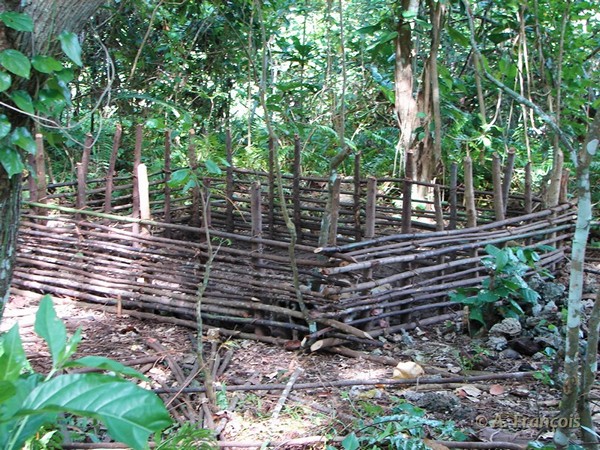
POc*qaRa
aero2 aero noun
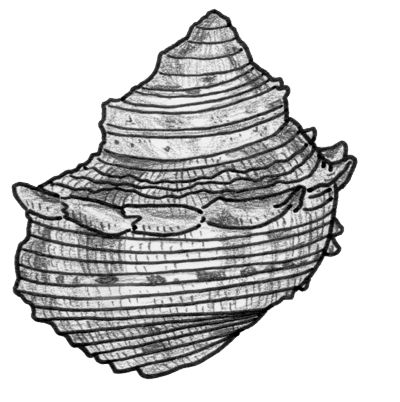
POc*kaRi
Sea
1 – genseashell of any form
| Le-le ne touro li-odo aero?Shall we go to the reef shore and look for seashells? |
2 – espbivalve shell, traditionally used as an instrument to grate (~lu ②) coconut flesh or scrape the skin of tubers
aero we anive aero we anive noun

Sea
shellfish for dugongsmall cone shell used as traditional money (viko) in Vanikoro, and other parts of MelanesiaConus musicus ceylanensis.| Li-ia aero.scrape cone shells to make cowries |
| Li-loko aero we anive, li-si kangele i-ke mina.They collect cone shells, and cut off the mollusc part. |
1 – the sun
| Aeve pana!The sun's hot! |
| Li-tabe i-le i-wene ne aeve me kokoro.They bring it out to lie in the sun so it dries up. |
2 – espthe sun in its daily course, as a reference for indicating the time of the day
| Aeve ka i-vene labiou awoiu.The sun has long risen already. |
| Aeve ka i-le.[the sun has gone away] It is early afternoon. |
see lexical list atmoro ①
~ago (i·)aᵑgo
Bverb, oblique transitive
strike (s.o., s.th.: ñe) using a long object
| U-la tepao u-ago ñe namuko pon.You spear the fish with a harpoon. |
| Besungale ini emele ero me ini biouro, i-ago ñe eo kape u-bu.mythologyBesungale is a woman with long breasts, with which she can strike you to death. |
ai- ai· subject prefix
Grammar
you: variant of a- (2sg Realis prefix) before a vowel or certain monosyllabic roots
| Ai-ovei Cindy?Do you know Cindy? |
| Ka ai-ve?Have you given birth? |
Anoun, kinship
2 – classificatory father: any male member of the parental generation (F, FB, FZH, MZH…) except the maternal uncle (MB = gea)
~aiae (i·)aiae verb, intransitive
s.th.be difficult
| Piene adapa i-wen' moli, i-aiae tae!Their language is easy, it's not difficult. |
| Li-vete piene ñi i-aiae, ia li-lengi wako.They speak it with difficulty, but they understand it well. |
| Ni-romo viko i-aiae teve ene.Money is an issue for me. |
Ai’ akapa ajakapa noun
Christianity
our FatherGod
| Ai’ akapa i-tabe ma ini boso eo ka uña damiliko iono.blessingLet our Father raise his hand above you and your children. |
Grammar
form of the possessive classifier used for food, tools, customary possessions etc. (enaka*), with an impersonal possessor (idi ‘people’)
| Na tanoe aidi abia.This land belongs to everyone. |
| Noma li-lanasu idi ne kula none aidi, we viñe buioe aidi.In the olden days, black sorcery would make use of someone's leftover food, or of their leftover betel nut. |
Grammar
your (food+), of you and them: form of the possessive classifier used for food, tools, customary possessions etc. (enaka*), with a 2 plural possessor (see kaipa*)
| Ka vitoko kape le-mui piene aipa.They will soon forget your language. |
| Pi-valangia nganae aipa ponu?What are you guys carrying? [lit. which things of yours] |
see lexical list atenaka
1 – stand up, get up
| Abu bai-aiu ba-vio me ne-rom!Could you please stand up and let me have a look there? |
2 – depart, leave a place, take leave
| Idi abia ne kulumoe li-aiu li-le li-langatene ne sekele.All the villagers have left to go and work in their gardens. |
| P-aiu pe-wo pe-le ne ngogoro!Get up and run away to the bush! |
| Ngiro Palapu i-ka ka li-aiu li-ke li-pwalau i-le Iura.As soon as the northern wind began to blow, they left [Vanikoro] and set off to sail southwards. |
rubbish, refuse, garbage
| Ni-bo ajekele mina mevele 'none.I have collected rubbish from my front yard. |
| Kape le-loko ajekele le-iui ne revo.They're going to gather rubbish and throw it into the sea. |
1 – windblow strongly
| Ngiro i-aka.The wind is (blowing) strong. |
| Nanana i-aka tamwase.Today it’s blowing very hard. |
| Ngiro Tokolau i-aka i-ka tev' tawo ne.The Tokolau wind blows from the west. |
~akai (i·)akai verb, transitive
set ‹a trap›
| Li-akai i-le ne meteliko, menuko i-ava i-ka…bird huntingWe set [a trap] up in the sky, and when a bird flies in… |
Grammar
our (food+), of you and us: form of the possessive classifier used for food, drink, tools, customary possessions etc. (enaka*), with a 1st inclusive plural possessor (kiapa)
| ero korone akapaour alcohol (to drink) |
| Dapa Tukupie li-koie li-te ne tanoe akapa Vanikoro ponu.Tikopians have settled on our land of Vanikoro. |
see lexical list atenaka
akapa2 akapa possessive classifier
Grammar
our (relative), of you and us: form of the possessive classifier used for kin terms (one*), with a 1st inclusive plural possessor (kiapa)
| Pi' akapa dapa li-atevo nga pon.That's what our ancestors used to say. |
| Ka ai’ akapa i-tabe ma ini boso eo.blessingOur Father has waved his hands above you. |
see lexical list atone
~akawo (i·)akawo verb, transitive
1 – wear ‹s.th.› around o.'s neck
| Noma, idi wopine li-akawo kolokolo me i-botongo dapa.In ancient times, great men used to wear ‘kolokolo’ breast plates as a protection. |
see lexical list at~labu
al’ ero alero
alero
noun
river footriver mouth, down where a river reaches the sea
| alero peini iaero Paiuthe mouth of the Paiu river |
see lexical list atero ①
pick ‹areca nuts, buioe› by climbing on the tree
~ali2 (i·)ali verb, transitive
cast ‹a net, pele›
| Kape u-ali pele po a-labu ponu?Will you be casting that net you're holding? |
Alvaki alfaki placename
name of an area on the island of Utupua (Tetevo), where the Nembao language is spoken
Aadjective
1 – in small quantity; few
| Li-ejau aña none mijaka.We cook a little (bit of) food. |
| none aidi mijakafood for just a few people |
| Ero na mijaka: votobo pe ni-anu tae.predicateThere's too little water, it's not enough for me to drink. |
Anatomy
animal+flesh, meat
| anes kuleveluchicken meat |
| anes poipork meat |
| anes namukofish meat |
| anes mwalikorarehuman flesh |
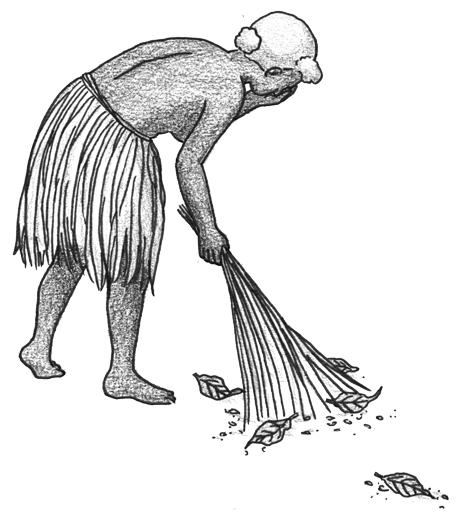
sweep ‹place, s.th.› with a broom
| Li-aneve lema mwoe, ka maro.They sweep inside the house, and outside too. |
anive anive noun
| Ni-rom anive iote pine ni-sai ñe kuo 'none ne.I saw a large dugong, I thought it was (as big as) my canoe. |
1 – piece, bit of ‹food+›
| aña mana luroa bit of rice |
| Li-ejau aña none mijaka.We cook a little (bit of) food. |
2 – taste of ‹s.th.›
| Aña wako tadoe![Taste is terribly good] This is absolutely delicious! |
| None ne aña tamwaleko.[this food, taste is bad] This food doesn't taste good. |
aña2 aɲa noun
Anthropology
a ritual of initiation symbolizing the transmission of a father's rights over land and ownership, to ‹his own children›
Li-miñi aña dameliko ✧ Inheriting from the father
Due to the matrilineal structure of Vanikoro society, children automatically inherit land and property from their mother's clan. But a special ritual of transmission (~mini aña (dameliko)) is required from the father to his children, to ensure that they will also inherit from their father's clan (basa ③) when he dies. The clan of the mother – represented by the children’s uncle (gi' adapa) – brings presents to the father in the form of mat money (savene) or shellmoney (viko). This will be a way, for the mother’s clan, to symbolically “buy the clan” (li-sava basa) – i.e. buy land rights from the father’s clan.
~mini aña (dameliko) verb-object idiom
fatherhold the ritual for childrenperform a ritual of transmission for ‹children›, symbolizing their right to inherit land and wealth from the father's side; hence bequeath land to ‹o.'s children›
| Aña dameliko 'none mamote pi-mini tae.We haven't performed the ceremony of initiation for my children yet. |
| Menu ie teliki i-ovei pe i-vene i-ka ini teliki i-laiaini ai’ iape pe ai’ iape i-mini aña.A chief's son can rise to become chief, succeeding his father, only if the father has bequeathed it to him. |
| Teulungo ie ai’ adapa li-ovei pe li-la nga ai’ adapa i-mini aña dapa.upon the father's deathThe headrest of their father, they can inherit it only if their father has performed the transmission ritual towards them. |
añaña aɲaɲa noun, relational
small bits of ‹s.th.›
| Li-mali iawo semame añaña longe.We light a fire with small bits of firewood. |
MorphologyReduplication of aña, with pluralising and diminutive effect.
Cf. apilaka ‘small’
pldameliko
non-relationalchild, young person
| E, apali! U-ka ko!Hey, child! Come here! |
| Basavono pon ene mamote apali.At that time, I was still a child. |
apalimata apalimata noun, relational
relative of ‹s.o.›, member of o.'s close family
| Eo apalimata ene.You're my relative. |
| Apalimata Stanley tilu kape la-ka la-romo ini.Two of Stanley's relatives will come visit him. |
Synt.Although it refers to kinship, this relational noun does not encode its possessor using the kin classifier (one, ie ②), but with a direct possessor, like body parts.
synonymne ① ⓑ▻②
synonymdapa enone
his, her (food+): form of the possessive classifier used for food, tools, customary possessions etc. (enaka*), with a 3 singular possessor (see ini)
| namuko apehis/her fish (to eat) |
| okoro apehis/her knife |
| Taluaito i-su uro ape.The sorcerer lit his (magic) charcoal. |
| Ene ni-mui piene ape.I don't know her language. |
see lexical list atenaka
Cf. apali ‘child’
~apilo (i·)apilo verb, transitive
make, create ‹s.th.›
| Li-apilo vekai wamtaka.They made small puddings. |
| Dapa noma vana li-apilo tenuro.People in the past used to make coconut-string ropes. |
synonym~ejau
~apinu (i·)apinu verb, intransitive
cook, prepare dinner
| Noma, li-apinu ne mwoe.In the old days, cooking was done inside the house. |
| moe pe li-apinu enekitchen [lit. house where one cooks] |
synonym~ejau ngatene
~aptei (i·)aptei verb, intransitive
swear (on s.o.'s life, ñe +N)
| Dapa li-le ne ene tae, ka ene ni-aptei ñe lek’ one.They were not believing me, so I swore on my cross-cousin's life. |
| Ni-romo lek’ one emele tae. – Pe i-kae? – Pe ni-ovei pe ni-aptei ñei.I can't have any eye contact with my female cross-cousin. – Why so? – Because she's the one I can swear on. |
AnthropologyYou typically swear on the life of your cross-cousin (leka).
see infobox atleka
POc*qatasoul, spirit
soul, spirit of ‹s.o.› insofar as it can be separated from the body
| Ata ini kape i-le ne Popokia.abode of the DeadHis soul will travel to Popokia. |
| Nga u-le, ata tadoe kap' i-ejau bas' eo mumule.If you go there, the (evil) spirit of Ghosts can make your head go crazy. |
ate ate postverb
for good, forever
| Ka li-te ka li-te ate.They stayed there, and stayed forever. |
| Voko i-wene po, ka i-wene ate.That rock remained there, and remained forever. |
~atili (i·)atili verb, intransitive
slide along a surface
| Kuo pine ponu i-atili i-abu i-le.The huge canoe was sliding down (on the rollers). |
~au2 (i·)au verb, transitive
wrap ‹s.th.› with a leaf or equivalent
| Kape li-au ñe uie baudo.We will wrap (the food) with 'baudo' leaves. |
| U-au ñe pepa.Wrap it in paper. |
POc*kapak
Birds
1 – bird+wings
| Ava ini ukiliro.Its wings are colourful. |
ava saba noun
Anthropology
frigate wingsname of a traditional geometrical design (tetawene), whose shape is reminiscent of open wings
~avi (i·)avi verb, transitive
pick ‹s.th.›, pick up, espec. by pinching it between o.'s fingers, or holding it with tongs
| Awoiu pon li-avi otovo.Then they picked sago leaves (from the trees). |
| Li-avi visiboko ñe aviro.You remove the oven stones with the tongs. |
Naut
4 – boat+float, stay afloat (vs. sink)
| Toñaki ka i-avo ka i-tab' i-le.The ship remained afloat, and began its way back. |
avtebe afteᵐbe noun
Words for taro ✧ avtebe, jebute, vioe…
| avtebe ; bute ; jebute | Colocasia esculenta |
| vioe ; vioe die | Xanthosoma sagittifolium |
| vioe talabao | Alocasia |
| vivilo | Cyrtosperma spp. |
| jie ; tongo | taro sucker |
| ~teli | to plant ‹tuber+› |
| ~langiro | to plant Colocasia taro |
| ~ae | to dig out ‹tuber+› |
formal registertaroColocasia esculenta.
| Li-apilo sekele i-le li-teli avtebe.Once they had prepared the gardens, they planted taros. |
casual synonymjebute
2 – the seat of feelings, the ‘heart’. Grammatical subject of certain predicates referring to feelings
| Awa ene i-su.[my throat is blocked, ~su ② ⓑ▻③] I am sorry. |
| Awa ene i-aka.[my throat blows, ~aka ①▻③] I am angry. |
| Awa ene motoro ñe piene pe a-viñ' ene.[my throat/mind is heavy…] I give a lot of consideration to your words. |
3 – esp+object NP, or object clausethe seat of will and desire
| Awa ene ni-ko ne-sava teve teliki.I want to buy it from the chief. |
| Awa eo i-viane? – Tae, ni-mene!Do you want it? – No, I don't. |
4 – hencewill, desire
| Awa eo i-viaene pwo nga iu.prayerThy will be done on earth as it is in heaven. |
| Emele pon i-katau awa ene!humThis girl sure suits my desire! |
awa ~ko awa (i·)ko construction
1 – my neck/mind saysthink, believe
| Awa ene i-ko “Kape wako.”I thought to myself: “It's going to be alright.” |
| Awa ene ne-ko me le-la awis pine iakapa le-lamini tili’ akapa Dr Alex.I would like us to extend our big thanks to our friend Dr Alex. |
awa ~viane awa (i·)vjane
awa ~viaene
construction
Around the oven ✧ awene
| awene | stone oven |
| visiboko | oven stones |
| iawo | fire* |
| ~avi | remove ‹stones› |
| aviro | tongs for moving ‹stones› |
| iunubo | food parcel |
| mama ② ; vekai | pudding |
| ~vai | bake ‹s.th.› |
| ~tau ; ~apinu | cook ‹s.th.› |
| motoe | raw |
| moioe | cooked, done |
traditional stone oven
| Li-mali iawo ne lema awene, semame añaña longe.We light a fire inside the stone oven, using small bits of firewood. |
| Emel' iote i-le i-wowo revo i-ka i-sabisi se awene.A woman went to draw saltwater, and brought it back to pour it above the oven. |
awis awis
awo awo noun
📘 Lime takes the form of a white powder similar to flour. It is often stored in a small box or pouch that men carry around as a necklace, so as to have it available whenever they chew areca nut.
see infobox at~kanu
Apredicative
1 – s.th.end, finish, be over
| Ka awoiu pon ta.closing formula(the story) it's over. |
| Li-langatene i-le i-le i-le, ebieve iote awoiu.They worked on and on, for a whole month. [lit. and a month finished] |
synonymkatae
BTense Aspect Mood marker
Dquantifier
Grammar
linked with plural pronounall, everybody
| Kiapa abia ponu na bwara awoiu ne sekele, nanana.floating quantifierAll of us here, we were all in our gardens, earlier today. |
| Kupa ka pi-le awoiu ne temotu tilu pon tae.floating quantifierWe did not all go to the two small islands. (i.e. Some stayed on the mainland) |
synonymabia▻②
